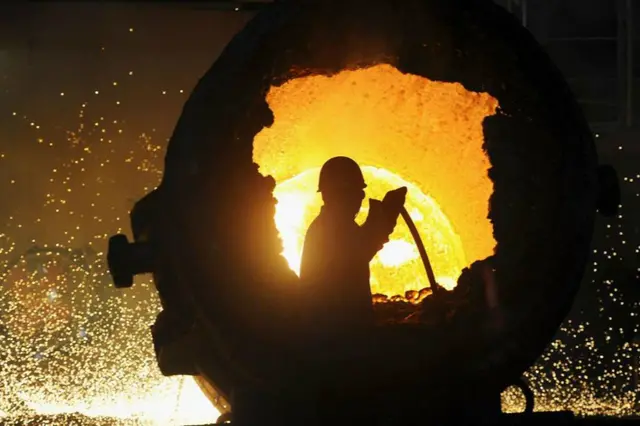JP Morgan analysts said liquidity and credit risks may increase.
While analysts have welcomed the apparent shift in Chinese policy towards structural economic reform, it could in the short term lead to rising liquidity and credit risks that are problematic for banks.
A credit risk is the chance of defaults by borrowers, while liquidity risk is the danger of being unable to buy or sell an investment as quickly as needed. In the broader economy, a liquidity crunch is a situation when it becomes more difficult to obtain external financing, making it hard for companies to meet their short-term obligations and potentially leading back to credit risks.
The much-referenced interview with ‘an authoritative person’ in the People’s Daily newspaper — a mouthpiece for the Chinese Communist Party — published on May 9 strongly indicated that policy makers are shifting from a ‘pro growth’ stance to one of ‘structural reform’. This is already starting to be seen in the figures, such as total social financing (TSF) data, a measure loosely designed to show the amount of money in the Chinese economy, which declined significantly in April, falling 68 per cent month-on-month and 29 per cent year-on-year.
The decline suggests that efforts may now be underway to cut the amount of credit in the Chinese economy after an easy borrowing environment in the first quarter led to a re-leveraging of China’s industrial sector. This is reinforced by the editorial which said: “A tree cannot grow in the sky. High leverage will inevitably bring about a high level of risk.”
Concerns about the scale of non-performing loans on Chinese banks’ balance sheets are certainly growing and the China Banking Regulatory Commission said in its quarterly report that non-performing loans at Chinese commercial banks had risen by nearly 120 billion yuan (HK$142 billion)in the first quarter of this year.
The change towards structural reform and away from a stance focused on growth was welcomed in a recent note from JP Morgan on China banks, written by Katherine Lei, Stephen Tsui, and Anurag Rajat. They described the shift as “good news” and said: “a re-focus back on structural reform is necessary.”
Nonetheless, while Lei, Tsui and Rajat remained optimistic with regard to the long-term outlook of the banking sector they noted that “reform is likely a bumpy road, especially when corporate earnings are declining and system leverage is high. There is little room for marginal error.”
“The combination of regulatory tightening and normalisation of credit increases the probability of liquidity events and rising credit risks in the near-term. We suggest investors avoid banks with weak capital and liquidity buffers, yet high non performing loan formation pressure,” the three analysts said.
The research note said that since 2008, two liquidity crunches raised concerns about systemic risks. The first, in 2011, primarily affected underground lenders, while the second, in June 2013, affected the interbank lending market. Both took place at a time of reduced liquidity and followed tightening of banking regulations.
“If history provides a reference, then we believe the decline in TSF in April and recenttightening of trust beneficial rights and bills business may raise the probability ofliquidity volatility,” wrote Lei, Tsui and Rajat.
Other concerns for banks as a result of the reforms that were noted in the report were fears of rising defaults due the tightening credit, particularly on zombie companies and those in overcapacity sectors and worries that rising defaults on corporate bonds would to lead declining demand and potential downgrades by local rating agencies. In turn this might accelerate the amount of non-performing loans as some companies are not able to roll over their credit through bonds issuances.
The authors concluded: “We remain positive on banks in the long run on the back of structural reform, however, we turn more cautious in the near term due to recent developments on tightening regulations and a slowdown in credit.”
(SOUTH CHINA MORNING POST)
 简体中文
简体中文



